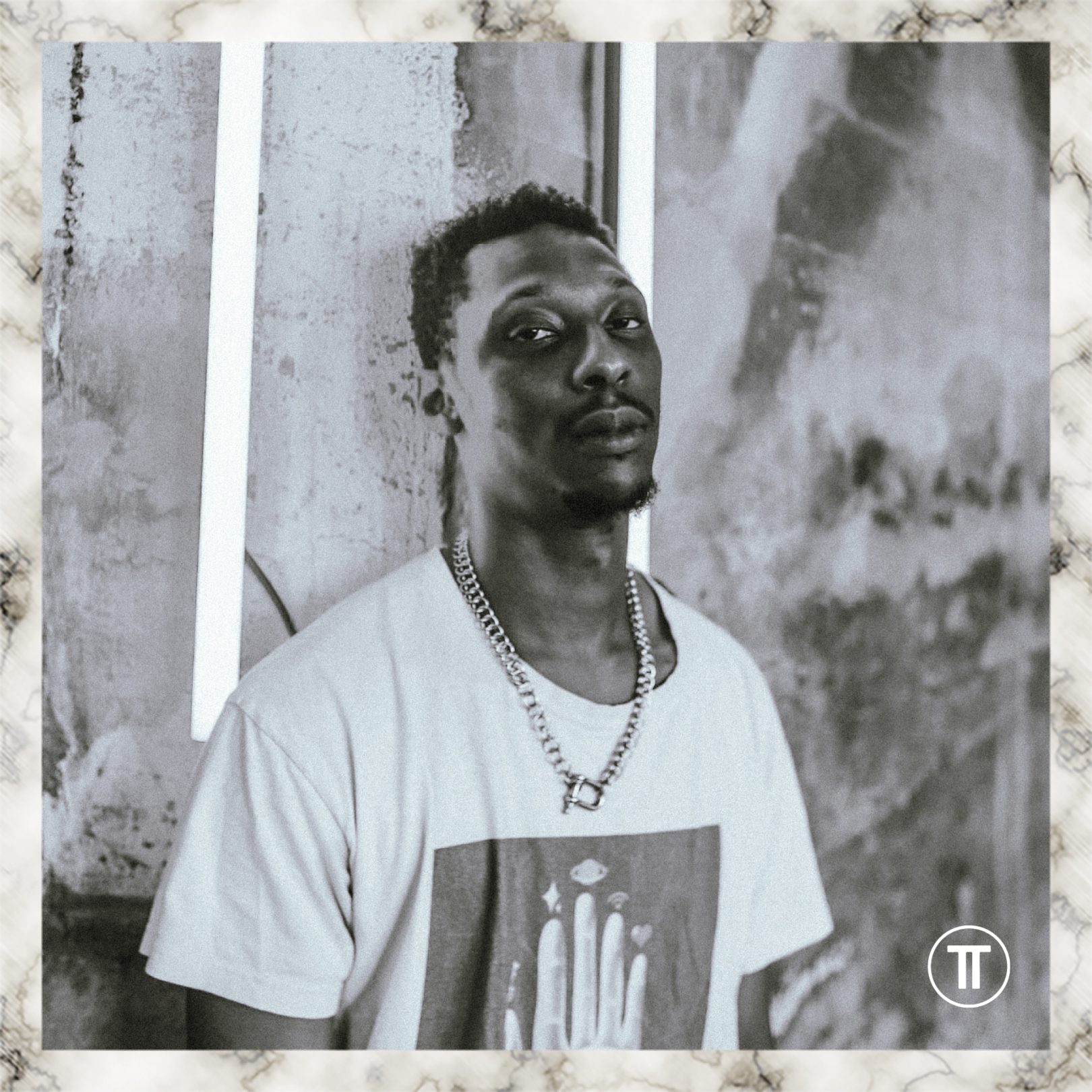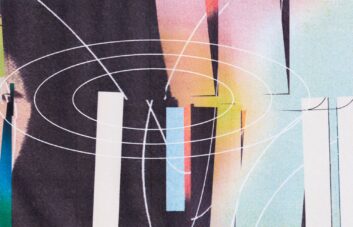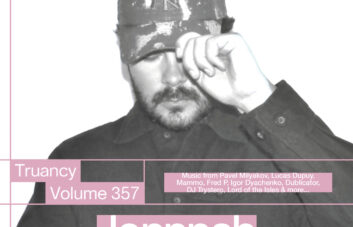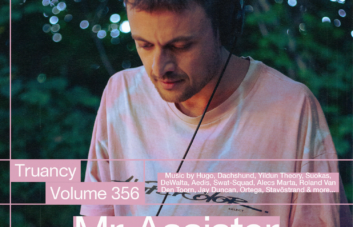In an era dominated by polished productions and skyrocketing BPMs, Brooklyn-based artist DJ Wawa stands out for embracing a more personalized pace. Having been an integral part of Brooklyn’s music scene for over a decade, the DJ and producer has established themselves as both a key figure locally and a passionate advocate for the broader electronic underground. Renowned for their deeply personal sets, DJ Wawa is fueled by a commitment to exploring new records, ensuring listeners always encounter fresh sounds. Drawing inspiration from a broad spectrum of house music across the decades, DJ Wawa skillfully combines beloved classics with obscure white labels, creating both nuanced and innovative mixes.
DJ Wawa’s distinctive style has seen a surge in demand in recent years, highlighted by their residency at The Lot Radio and their NTS show, “Hit Factory,” along with prominent performances at events like the esteemed Honcho Campout, Making Time, and Sustain-Release. As a producer, DJ Wawa blends the iconic sounds of Chicago and Detroit dance music with contemporary rhythms and subtle sampling, resulting in techno-infused house tracks that are both infectious and timeless. In collaboration with fellow artist Clay Wilson, they’ve released a series of tracks on their label, Hit Factory Records, which showcase DJ Wawa’s expansive sonic palette and contemplative approach to electronic music.
Driven by an insatiable desire to discover new sounds and push creative boundaries, DJ Wawa’s musical contributions are rooted in passion. This is vividly demonstrated in their Truancy Volume mix, a captivating journey featuring watercolor synths, vibrant chords, and expressive vocals, with standout tracks like Shinichi Atobe’s “Ocean 2” and the emotive “Three Waves” by Claude Young, Chuck Daniels, & Mike Clark. Spanning garage-inflected house to Egyptian Balearic, DJ Wawa’s Truancy Volume mix underscores the eclectic nature of dance music and its unique capacity to forge connections. In the accompanying interview, DJ Wawa offers a glimpse into their musical journey, provides insights into the Brooklyn scene, and reflects on their artistic growth.
Hello, DJ Wawa! We’re thrilled to feature your beautiful mix and grateful for the opportunity to ask you some questions. How has your year been so far, and have there been any standout moments? What are you looking forward to in the coming months? “So far, so good! I’ve been enjoying some downtime that has allowed me to get into the studio and try my hand at producing again. I’ve also been bopping around here and there to hear what the people are playing out. I feel like an out-of-work actor kind of taking in the ever-developing underground :).”
Which artists or records, new or old, have captured your attention recently? What was the last record you purchased, and what about its sound drew you in? “I think this Simone – Mabsouta record that Sound Metaphors just reissued has really had a hold on me. I got to close out Bossa Nova Civic Club this past weekend with my friend Mx. Blaire, and getting a chance to throw that in the mix really does get me going. It’s slow, it’s Balearic, it’s Egyptian, and sexy. It’s one of those tunes that just gets me really in the mood to move.
“‘Ocean 2’ by Sinochi Atobe is also a big tune for me right now. He makes the music I envision myself making when I get to a certain point. And that track is just so sweet and simple but does something to your heartstrings. Subtle brilliance.”
Looking back on your move from San Francisco to New York, which appears to have been the catalyst for significant changes in your life, what thoughts, hopes, and fears did you grapple with as you made that decision and physical transition? Do you ever imagine the musical trajectory you might’ve followed if you’d remained on the west coast? “I think the scariest thing about moving to NYC was the scale, but ultimately it felt like the decision made itself as there wasn’t much happening for me in SF towards the end. All of my social energy was also kind of pushing towards New York, as were all the opportunities. So in that sense, it didn’t feel too crazy. I came through with a carry-on bag’s worth of clothes for 8 months and a Twitter account, lmao. But I was lucky enough to have some really good friends and lucky enough that Bossa Nova Civic Club existed not a 15-min walk from my apartment.”
“And to be fair, that was unfortunately not my best period in San Francisco. I had fallen out of a couple of projects that I was initially very passionate about but ultimately couldn’t keep up with. Rashad passed away in April 2014, and it is really hard to think about that time without remembering what a dark shadow that was, and in some ways still is. We were working closely with Rashad at the time, by ‘we’ I mean the Surefire Agency, and I think emotionally I never really recovered. Leaving SF was an opportunity to kind of have a new beginning, but I am incredibly lucky to have experienced what I did there.”
How has living in New York, specifically Brooklyn, shaped your sound and identity? Could you provide insight into the current music scene from your viewpoint? What do you perceive as its strengths and weaknesses? “NYC definitely expanded on what I was hearing in SF. While I heard a lot of darkwave, EBM, and bass music on the West Coast, on the East Coast, especially in Brooklyn, there’s more emphasis on house and techno. You know, people in Brooklyn are inherently closer together. The scene is geographically not so big, so when you’re here, there’s a lot of techno, a lot of urge for rebellion, and a lot of hard dancing going on.”
“But that is also shifting to the bass music revival that I think we’ve really been into post-lockdown, which has been a refreshing change of pace at its best and a little overdone at its worst. But I love bass music, and bass music is what got me into dance music, so it’s been a good time for me.”
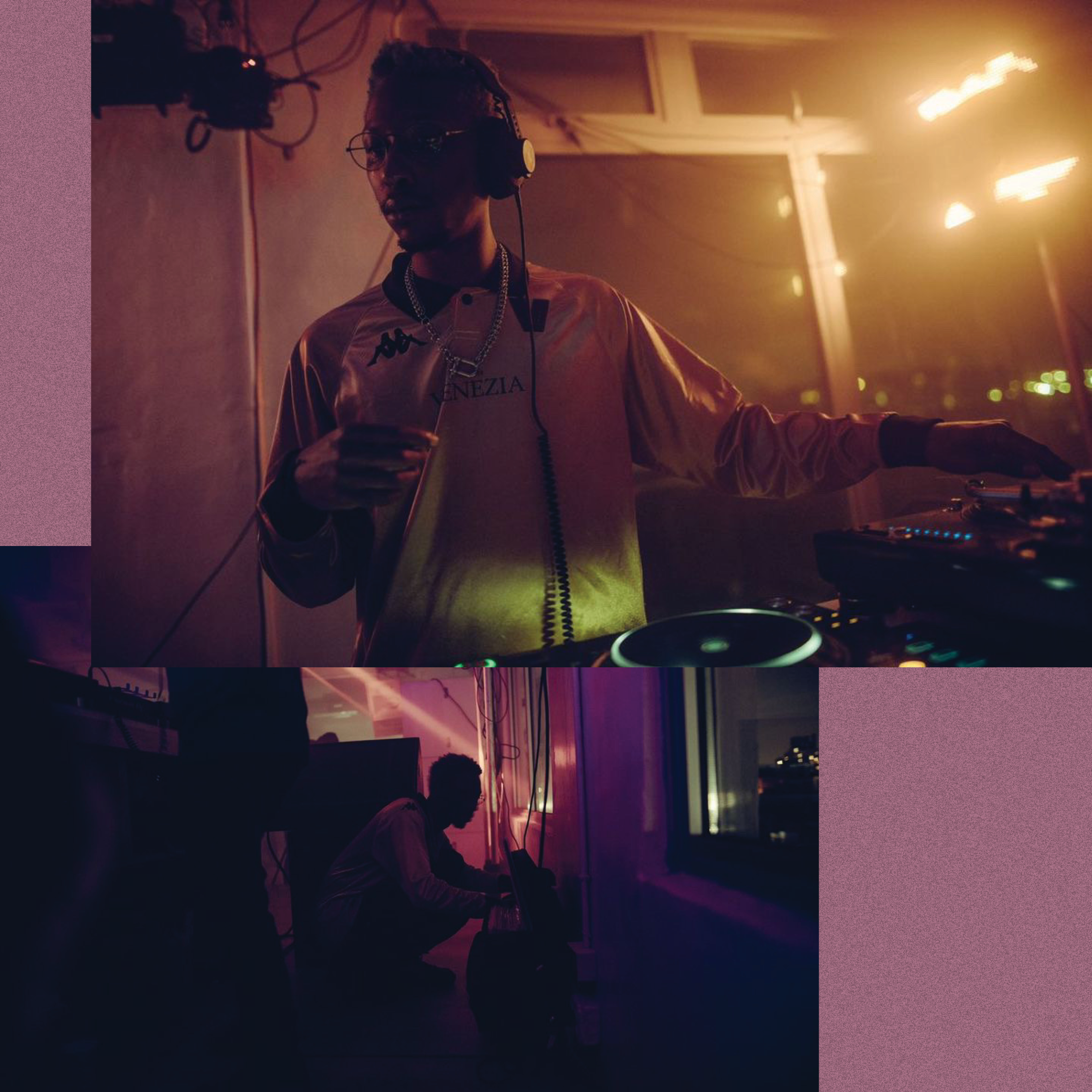
Given your deep understanding of Brooklyn’s nightlife and music scene, have you considered compiling your insights into a publication? Do you think it’s important to document and share the stories of such local scenes? “I am thankful for the amount of experiences I’ve had and the relationships with this music and some of the people who make it or are responsible for how it’s been shared and received. Playing music in other cities in America and across the globe has also been an eye-opener in terms of how this music is shared and how hard people work to create and maintain these scenes. I think if one day I am lucky enough to be asked to write something that I have an intimate experience with, I would jump at the chance. It would have to be the right subject with the right people involved, but I am very open to sharing as much as I’ve seen with as many people who are interested in listening.”
You’ve previously discussed the profound impact of Rashad’s musical legacy on your journey and his influence on the industry’s broader acceptance of black artists and faster styles. How do you perceive his music continuing to shape the larger scene, and in what ways are you embodying his ethos? “Rashad and the TEKLIFE crew are responsible for so much of today’s music—it can be overwhelming to think about. But the 160 thing and the gravitation to those numbers being a genre in themselves stem back to him and the rest of the crew, highlighting just how much of a chokehold they had on the world of dance music at the time. I also want to credit SOPHIE for the intense focus on faster sounds, but Rashad did this thing of mixing hip-hop (the youth’s most popular genre) with high-speed garage and acid sounds that made his music such an easy crossover from underground to mainstream. I remember in 2014 at SXSW when he headlined the Pitchfork day party and the Resident Advisor night party on the same day! It doesn’t get more crossover than that. To be an indie darling and at the same time one of the most in-demand DJs and producers on the planet.”
“One of the hardest realities of his passing are the what-ifs? Like how much success would he have had? How would that have translated to the rest of the crew, and how would footwork have meshed on a global scale with popular music? Rashad passed away at the absolute mountaintop of respect and popularity. It is impossible to predict if anyone will ever be able to touch both dance music and those who may not be super into dance music but appreciate what it was he was doing. Bridging a gap between fun and mind-blowing. Also, it must be said how sweet and nice he was, how interested he was in music from all genres. One of my favorite memories of him was at that SXSW when I was off listening to whatever I was into at the time, and he said, “Greg, you gotta take me with you next time! Don’t leave me out!” I miss that guy very much.”
Given your diverse roles in the scene over the years, have you found it challenging to separate the business side of the industry from the pure act of music creation? How important is it for artists to engage with or understand the logistical aspects? “Personally, I have found it challenging, mostly because I’ve had trouble finding anyone to help me kind of do this work or spread my message. It can be hard to not take things personally when, of course, it’s just business. It can be hard not to take people in your own city sleeping on you personally when you’ve been around for a long time. And it can be hard to watch time and opportunities feel like they’re slipping away because mentally and emotionally you may just need a break. This calling is not very forgiving until you reach a certain point.”
“Personally, I see myself as a survivor. I am not the biggest name, I don’t have much of a catalog…my tunes aren’t getting played here or there. In fact, usually the reason why I’m able to play or have these opportunities is because of the time I’ve spent, the people I’ve been able to meet, and how I’ve talked about those experiences on Twitter [X] or Instagram or whatever and the reputation I have as a music lover and a supporter of the scenes. I think this year I want to make more tunes and work on kind of building that catalog so I’m not so reliant on strictly my reputation. I wish being a DJ that played very different stuff and can rock a crowd like no one else was enough, but as this industry has evolved to include crazy profit margins for club owners and party throwers alongside the kind of Instagram model / DJ world, there is so much more you have to do to stand out rather than just being a part of this world for 10+ years.”
When digging for records, to what extent is your search predetermined? Do you set out with specific styles or artists in mind? Can you easily recall artists or labels while sifting through a stack? What attracts you to a record initially, and how quickly can you discern whether it resonates with you? “The best part about digging is how not predetermined it is. It is dictated by what’s in the store at the same time I’m there. Usually, if you see me digging, I’ll first just go through as many stacks as I can and build a stack to listen to. Often times it’ll take an hour or two of just collecting things in the store I want to listen to and maybe another 3–5 hours of going through each record and seeing if anything is actually for me. Of course, you grab labels that you know of and look for symbols and names you’re aware of. But there’s no way to know how hard something hits until you put the headphones on and drop that needle on the record and see if it can take you anywhere. The best records take me to a DJ booth at a really jumping party where I can see it really going off. I think once I’m listening to something, I can tell pretty quickly if it’s for me or not. But even if it isn’t, there’s usually an idea in the music that can be extracted for later, usually for a track I see myself making.”
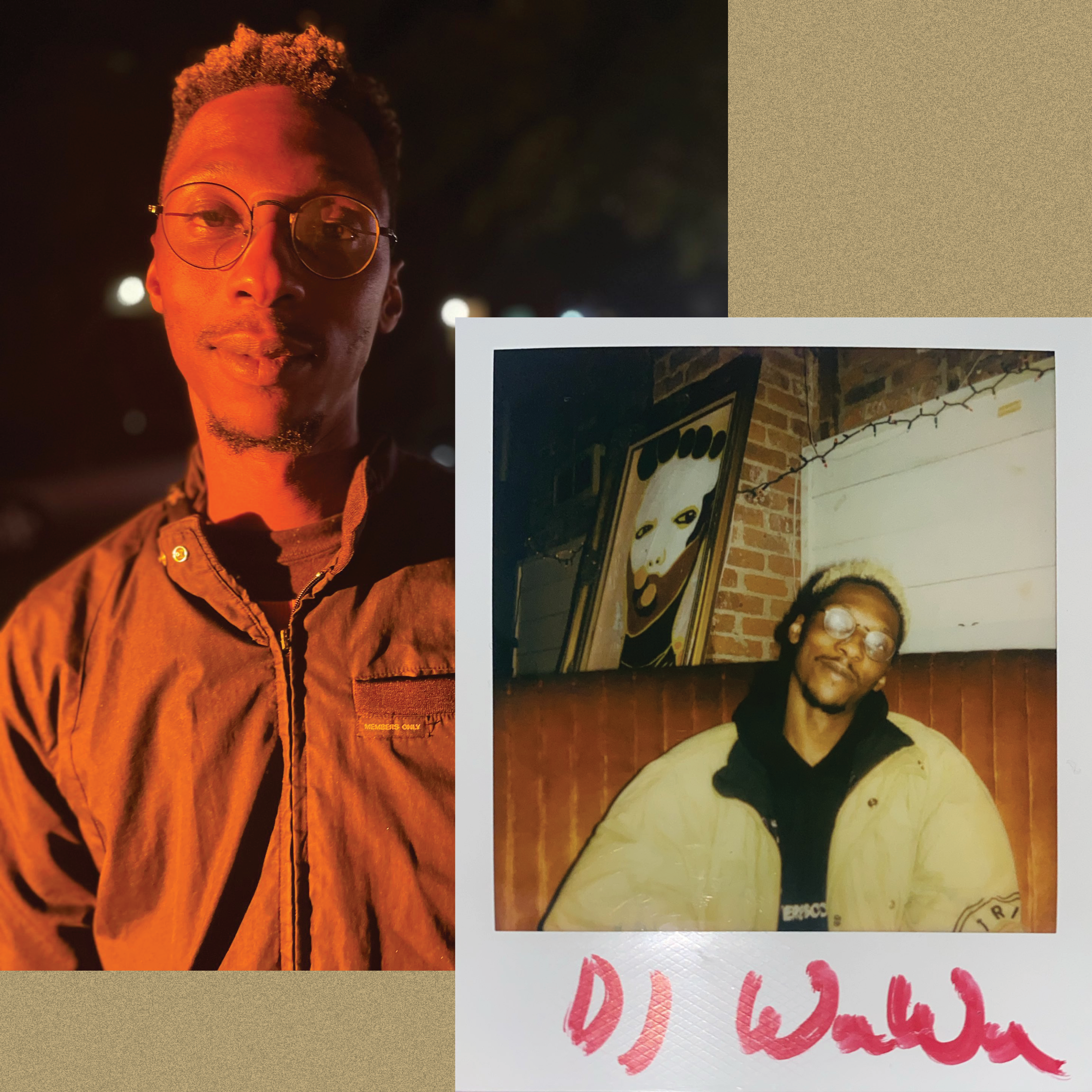
Are you able to anticipate how records will fit into your sets beforehand, or is selecting the flow more intuitive? How much planning informs your sets, and how do you choose records for specific contexts? “I think as I’ve played more and gained more context for the records I’m already playing and how they kind of flow in and out of each other, and how they affect the dance floor, you instinctually begin to know what you’re looking for. The more my bag becomes individualized and unique because I’m putting everything in there one by one, the harder it is to find stuff that fits right in to what I’m playing because it is pretty specific.”
“One of my favorite things about the way my bag is built is the arcs I can go on. Whether it’s the Jackin House arc or the disco and boogie arc or the City Pop arc (if you know, you know). Being able to build little moments in the set of four or more songs that are its own moment and connecting those arcs back to the wider DJ set…I love showing how the DNA of dance music, whatever the genre, has so much in common with each other and being able to translate that to an audience when I can feel them make that connection with me is always very special to me and one of the things that keep me going and pushing to evolve.”
Reflecting on your formative musical experiences, are there any artists, sounds, or styles that left a lasting impression on you? Do you believe any of these childhood influences inform your current style? How do you maintain a sense of wonder or purity in your connection with music? “Music has always been a significant part of my life. I didn’t realize it when I was little, but I was deeply interested in every aspect of it: record labels, how different places would sound way different than one another, and how people would grasp onto things they liked and loved. I was lucky enough to attend a pretty diverse high school in Long Beach, California, and the music my friends listened to was all over the map. The one genre that was probably underrepresented was dance music, actually.”
“I think as DJs, it is crucial to stay in touch with the music we grew up with, no matter how lame or immature we may think it is, because the ideas in that music definitely inform our taste as we get older. Being able to feel the connection between those two eras of self really opens you up to all kinds of sounds and experiences.”
What are some of your most memorable nightlife experiences? How do you compare the intimacy of a club to a festival like Honcho Campout or Sustain-Release? Do these different spaces serve distinct purposes for you? Do you feel there has been something lost in the transition from warehouse spaces to clubs over the past five-plus years? “Seeing Rashad and Spinn in SF that first time will always be something that sticks with me. Clubs are funny because they offer this chance to connect with the people around you. The club, if it’s full, is full of people that live in your area, that mess with the same stuff you do, and are there to feel that vibe with you. Honcho and Sustain are more of the centerpieces of the year. You want to go to them, you want to play them, you want to be a part of that experience so much that you’ve circled the dates on your calendar like a year in advance. Unfortunately, that can be a lot of expectations to live up to, whether you’re just going or you’re hoping to play them, and that is where it can get a little tricky. Expectations are always best kept low so all the randomness of those festivals can hit you over the head.”
“While the transition from warehouses to clubs has been one pushed on us by our cities and police departments, it can also feel like the democratization of the scene can suffer a bit. Each club has 2 or 3 bookers who are human like anyone else. They have favorites, they get on with some people and don’t with others, and they have their own agenda of what the dance floor should be and who deserves to play them. I can’t say the club worship culture has been my favorite interaction of this dance music thing but also what can we do? RBMA and other institutions have kind of extracted the culture bump they wanted from us and left us for dead. Clubs are uniquely positioned to be the lightning rod for the culture that we need but they are pushing their own agendas. They are inherently businesses who have to focus on the bottom line and while that’s all good it can mean that playing it safe or keeping a heavy rotation of never-changing residents means a lot of artists slip through the cracks. It’s a tough one and I don’t necessarily know what a good alternative would be.”
How crucial do you believe it is for nightlife spaces to adopt a political stance? What does it entail to utilize your platform effectively? In your opinion, to what degree is vocalizing political perspectives necessary as a performing artist or musical venue? “I think it’s imperative for nightlife spaces to stand for something. This music was built with a certain political idea in mind: Afrofuturism but also the idea that this is music for rebellion. When you have 95% of the DJs, dancers, and patrons of these clubs believing in that ethos of dance music but not being sure that the place they’re spending hundreds of dollars a month at stands for those issues, it’s concerning.
“There is a disconnect between the venues/owners that make all of the money from this scene and the intentions of the people playing, working, and dancing at these spots, and that is a real problem. At what point do we say, “Hey, we’re the majority here, there are like 5 of you and thousands of us, if you don’t agree to stand for what we stand for, we’ll go build something for ourselves?””
“The only thing these spaces have on us is an address and a sound system…we are the dancefloor. And if we want this music to continue to evolve and stand for something, we have to be aware of our power and when we need to take it back.”
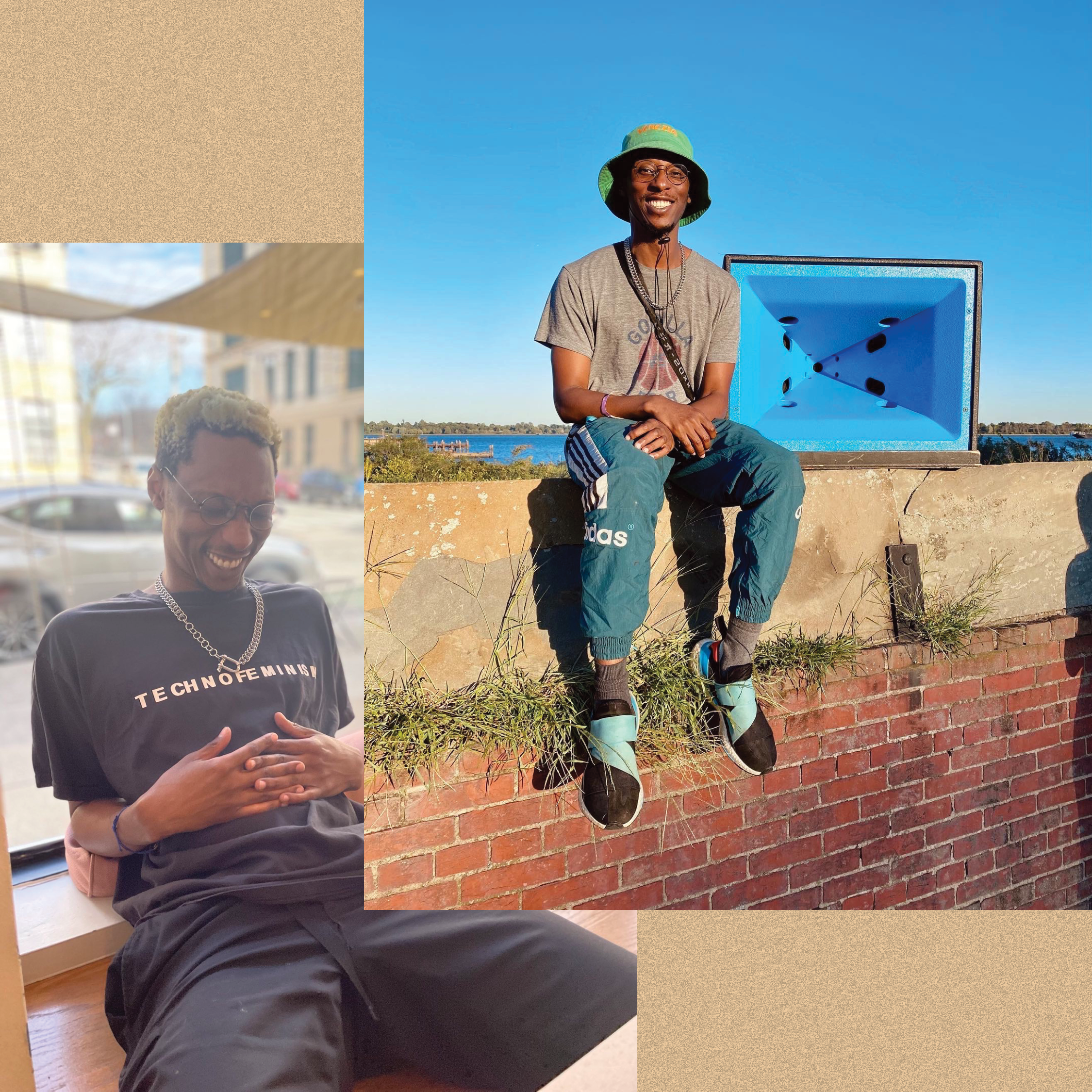
Which local or regional scenes excite you currently? Can you recall any noteworthy smaller clubs or parties you’ve recently played and what made them stand out? Where do you anticipate the physical spaces of underground, black, and queer scenes heading in the future – toward bars, clubs, warehouses, festivals, or elsewhere – and why? “Headcleaner in Columbus, Ohio; Behavior in Richmond, Virginia; Dance Club in DC; Boudoir in Boston; Kiss Me Again in Manchester are some of my favorite parties that I’ve gotten to play and experience and watch grow over the past couple of years. There are plenty more I’m sure, but watching young queer people build scenes in places where they either haven’t been previously or had fallen and are being brought back is maybe the most special part of traveling and going out.”
“I do see them continue to gain momentum in spots where the organizers plan to stick around. One of the biggest hindrances to these up-and-coming scenes can be the exodus to a place like NYC. Which I totally understand, everything is going on here, there’s a lot of clubs to play here and honestly as soon as you get on a certain booker’s or owner’s good side things can seem pretty sweet here. But who I admire the most are the people with the courage and determination to stay where they’re at and continue to build a foundation for those scenes in smaller cities. It takes time but from what I’ve seen it can be incredibly rewarding over time to watch yourself and your friends achieve things by holding each other down.”
When comparing your relationship with DJing vinyl to using CDJs, do you notice differences in your approach or connection with the music and audience? What factors contribute to creating a memorable DJing experience for you? “Playing records and playing CDJs isn’t inherently different. I think the biggest thing is for the audience. They see how involved playing records is, they take that extra moment to listen a little deeper for the warmth in the room. And they were a bit more mesmerized by the overall performance. I have personally come to see how bored DJs can look going back and forth between two computers while bouncing up and down. It just doesn’t translate as well to the energy in the room.”
“For me, building that energy slowly, going on arcs, not creating a narrative but just having one yourself goes a long way in being memorable. I don’t have a history button when I’m playing records so I don’t always know what I played and when, but there is this weird kind of energy that builds in between records that over time hits a fever pitch. One of the most memorable moments for me was playing in the UK for the first time at Field Maneuvers, kind of just doing my thing, my time is almost done and I’m about to play Minako Yoshida’s ‘Light’n Up’ and everyone has a smile on their face, everyone is jumping feeling the vibe and the DJ coming up next tells me “you’ve got a bit of a reputation here”.”
“I don’t have a million songs out, I don’t have a mix that has 50k listens on it, but I have my love for the tunes and my reputation for that…just a very special moment and very thankful to feel that vibe.”
In your view, what defines a good DJ set? Are there artists who consistently embody these qualities? Could you share a recent memorable experience watching another artist perform? “I don’t really like to talk about DJ sets being good or bad. I think we have a huge problem with judgment and negativity in this scene, and I’m not really about it. There is no standard for DJing. I think when people are doing their thing, putting their heart and soul into it, taking chances, and doing what feels right to them, that’s when things are just really special. And to be in that mindset, you kind of need to get rid of the ego and not be afraid of judgments.”
“Theo Parrish this weekend at Dweller is an easy pick just because of how lost he gets when he’s in the mix. You can almost see him leave his body and let his heart and soul do the spinning. Yes, he’s good at beat matching, yes, he’s technically sound. But he’s also there to share, to educate, and to try things. Watching him play is a lesson in itself.”
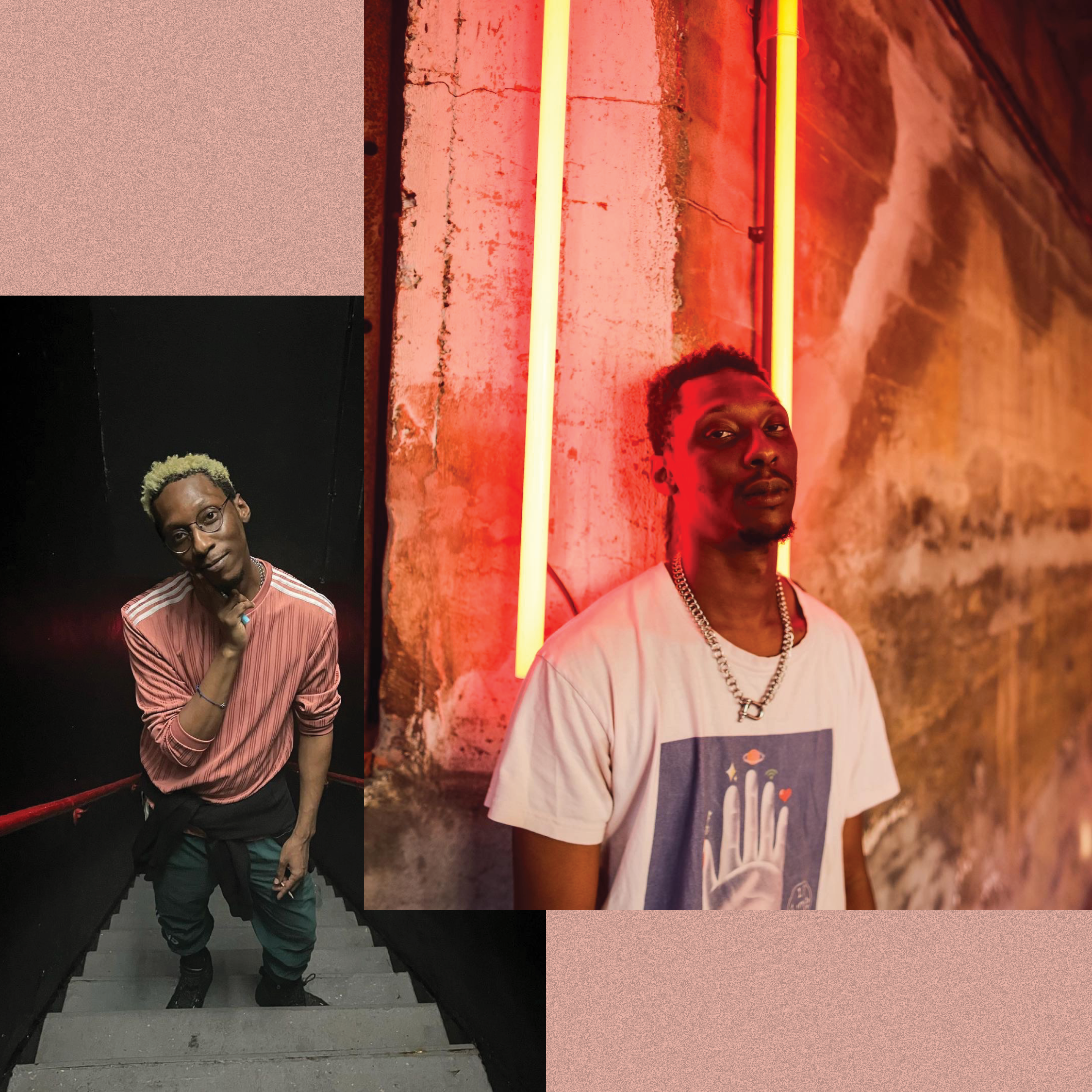
How do you evolve as a producer and DJ? What inspires you, and how crucial is it to challenge yourself? What does artistic challenge mean to you, and how do you sustain your love for music? “DOING IT EVERY DAY! There is no substitute for practice and for reaching deep down in yourself and seeing what’s there. I think that is a challenge in itself. I’m at a point in my time doing this that the phone has stopped ringing and emails have stopped coming…and I have a choice to either kind of start being discouraged and to think about this maybe being the end. And to be fair, 12 years in this industry is a lot and to be loved and respected even in the small way that I am will always be something that brings me immense joy and something to be proud of.”
“At the same time, I wouldn’t be able to live with myself if I didn’t keep fighting. Like I said, I’m a survivor, so this is the time to go deeper in myself, go deep at the record store, revisit things in my collection that have collected a little dust and let that reinject that drive and that individuality that I’ve been striving for and that has served me up to this point.”
How does music fit into your daily routine? Do you regularly listen to music or search for new records? How do you focus your intentions and craft, and how distinct are your roles as a producer, DJ, and music enthusiast? “Music is like many others in this scene, not just a place to go at night but also the daily barometer for how I’m feeling. NTS is wonderful for the fact that it can kind of meet me at my mood often times, and I do try to listen to online radio stations as much as I can just to be inspired, chill, and get a more global grasp on what is out there and what people are playing. I try to look for music as often as I can…even lately I’ve been enjoying digging through some of those Instagram accounts that just post old records…have found some absolute gems that way lately.”
“It can be hard for me personally to mix DJing and producing. I don’t tend to produce music that sounds anything like what I DJ. That may be a skill issue or just what comes out of me tends to be a little bit moodier and more whimsical than stuff I play on the dance floor. I am hoping to find a way to make those two worlds collide a bit more. Of course, as someone who plays records, I want to produce records that can be played, and that is a dream I hope to realize in the next year or so. Producing is something that should be done daily if you’re trying to improve. DJing is something that you should do daily in order to improve. It can be hard to keep up that kind of momentum, but the commitment to the craft goes a long way.”
Beyond music, what inspires you day-to-day? How do you unwind or reset? “Baking has been really helpful lately. There’s something about baking, creating something that is meant to be consumed quickly…that feels very much like creating music or DJing to a dance floor.”
“Relationships, for me, have also always been a very important factor in my day-to-day life. Intimacy, love, and relationships have always felt like they go hand in hand with learning more about yourself and digging deeper within oneself. I do feel like I gain so much from my relationships with partners and lovers, and when I’m in a certain flow, I am spending time with certain people in that way and just enjoying their company.”
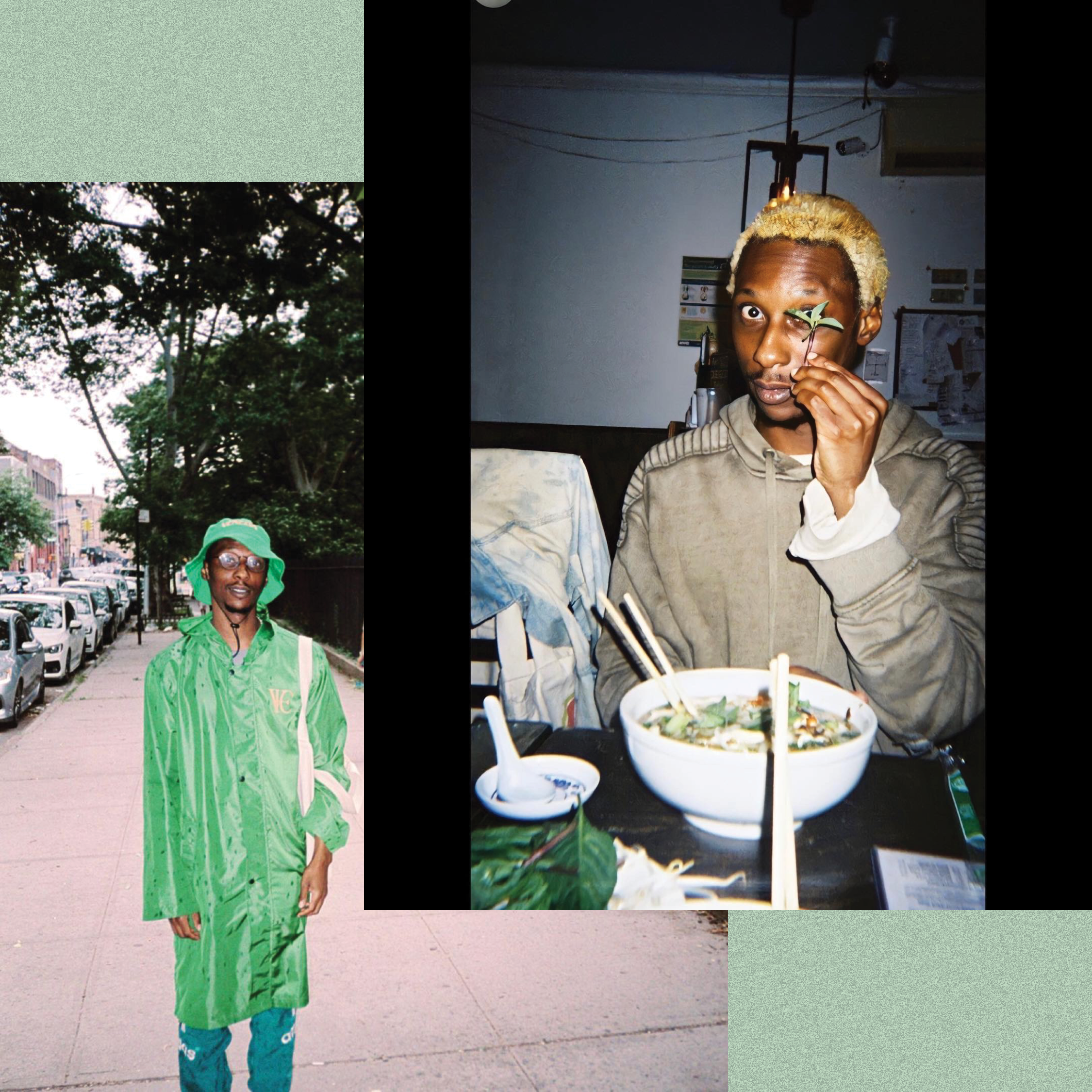
Are there any upcoming events or personal releases you’re eagerly anticipating? Do you have specific musical goals for the remainder of the year or new directions you hope to explore? “I’m trying to make as much music as I can this year. I would really like to finally get into a release flow of like making stuff, getting ready to put it out, and once it’s out, I’m already ready for another release to come out. I have had a lot of trouble during this dip in DJing and feeling like I’m not contributing much when I’m not behind the decks. So a commitment to making music, whether it be for the dance floor or for reflection, is something I would like to work on and develop as the year goes on.”
Can you shed light on your process for creating this Truancy Volume mix? Were there particular tracks you knew you wanted to include from the outset? What sounds, styles, or concepts were you aiming to convey? “This mix is about blossoming. Lately I have been working on my mixing, listening to as many new records as I can find and adding them to my collection as I do. I’m changing out the DJ rotation—the things I was on last year are finished. They’ll come back later. Right now my feelings have changed, I’ve changed, and I believe the music in this mix reflects the tension associated with such change. I’ve long aspired to contribute to this mix series and that kind of led me on a journey of musical discovery and self-realization. What came to be is all about the circumstance and chance that is looking for 12 inches, and the individuality of the bag.”
“Dance music is a funny thing. It’s about moments. Sometimes you mix things in, sometimes you completely clear out the other deck for another song to shine. I’m always doing a bit of both, I think.”
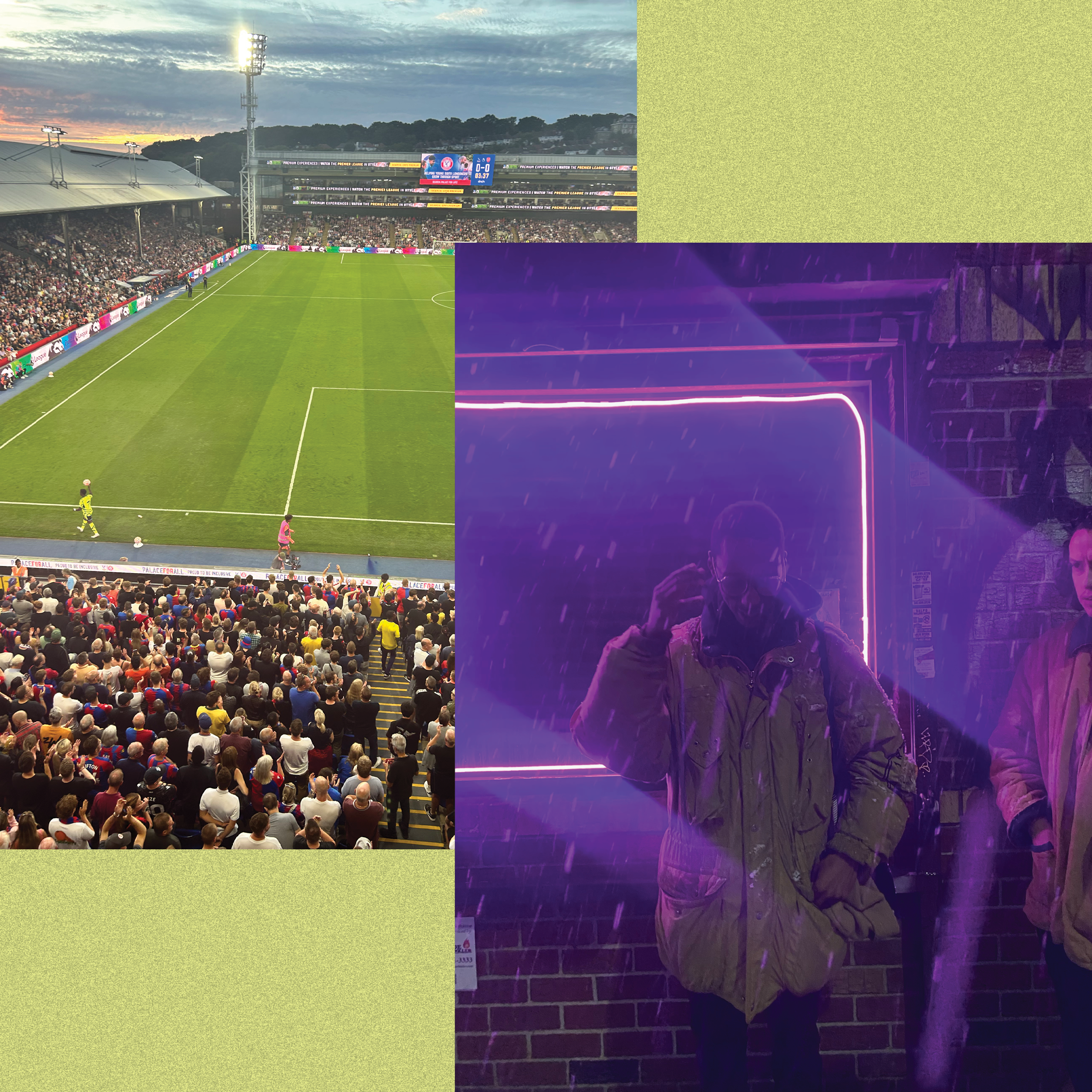
A bit of a left-field question, but can you share your first Premier League game experience with us? We’re very curious to hear your take on it! “Damn, my first Premier League game was more surreal than anything. If you follow me, you know I watch a lot of footy. Especially during the pandemic, there was this weird thing about football that kind of kept the calendar moving. And then there’s the quirky American thing of being into European soccer and watching games in the morning and afternoon that I also enjoy very much. I love to do the alternative thing. So finally seeing Saka, Declan Rice, Eze, and crew in the flesh doing their thing was a magical experience. Most of what there is to love about football is at the game: the atmosphere, the reaction to little touches here and there, and when you get to follow around a player with your eye the entire game and see what it is they do to affect the game when they don’t have the ball. Just so many things you can’t get from watching on TV.”
“But I also can’t lie, about a week later, I went to a Hibs vs. Livingston game in Edinburgh, and while the quality of the match maybe wasn’t as high, the energy and history and joy I felt in the stands was something that has stayed with me since. Just like going to shows, there’s something to be said about going to a match and being one of many rooting in the same direction and having conversations and shouting matches with like-minded folks. Both of those games were a lot of fun, and I cannot wait to get back across the pond to experience more.”
Lastly, any words of advice for younger artists? Is there guidance you wish you’d received when you started your journey over a decade ago? What excites you most about the younger generation of artists and future of underground music? “I mean, I worked in a prominent booking agency when I got started and never really learned about the history of dance music until I came to NYC. I think kids are a bit lucky now because a lot of the work has been done over the past 10 years in terms of putting all the information of these different scenes and places in one place. The dance music scene didn’t wake up one day as a black and brown queer rave space for all genders and people of all backgrounds…it was taken back by myself and many other comrades who have done the work and put up a fight. I remember going to parties and being one of the only black people there…now that just isn’t the case.”
“What excites me is that they are starting off in this really great place full of possibilities, and they are in control of it. Again, the masses should control this scene, not the club owners or the bookers. They have more agency than I did 12 years ago and a lot more references and guides. Knowledge will always be the most valuable thing, and to be honest, we are just now figuring out how to pass down all this dance music knowledge in the right way to this next generation. It is an extremely exciting time, and I hope they will allow me to be a part of it.”
DJ Wawa: Bandcamp, Instagram, Linktree, NTS, RA, Soundcloud, Twitter [X]
You can download Truancy Volume 325: DJ Wawa in 320 kbps and view the full tracklist on Patreon here. Your support helps cover all our costs and allows Truants to continue running as a non-profit and ad-free platform. Members will receive exclusive access to mixes, tracklists, and discounts off future merchandise. We urge you to support the future of independent music journalism—a little goes a long way.

